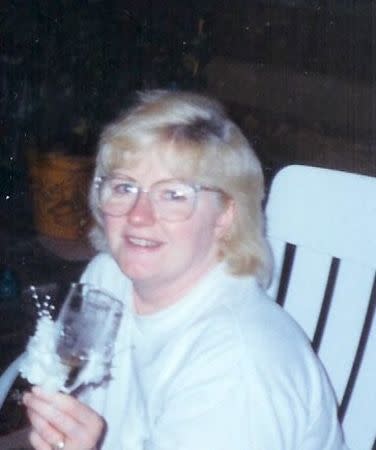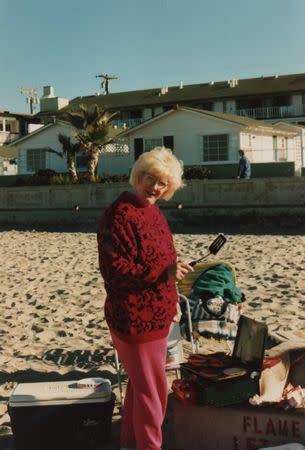California 'shaken baby' case in vanguard of new legal challenges
By Steve Gorman
LOS ANGELES (Reuters) - After 17 years in prison for an infant's death at her San Diego daycare center, Suzanne Johnson is in the forefront of legal challenges to "shaken baby syndrome" as courts catch up with medical advances in understanding the mechanisms of childhood brain trauma.
A judge last month agreed Johnson deserved to be considered for a new trial in a case that hinged on the syndrome, a 1970s-era forensic diagnosis long accepted as sufficient to convict caretakers accused of harming and even killing babies.
Appeals such as Johnson's are occurring with greater frequency at both the federal and state level, said Deborah Tuerkheimer, a Northwestern University law professor who wrote a book on the subject. But legal bids to reverse guilty verdicts are long and grueling, the outcome far from guaranteed, Tuerkheimer said.
"Criminal convictions are final, and science moves on," she said.
"Abusive head trauma" - a newer, broader term - is the leading cause of fatal child abuse in the United States, according to the U.S. Centers for Disease Control and Prevention, and conviction rates are higher than for other violent crimes.
Of 1,800 resolved cases since 2001, roughly 1,600 resulted in convictions, the Washington Post reported in 2015 after a year-long investigation.
Because the accused are typically trusted caregivers or parents, the consequences of a wrongful conviction are especially devastating, not only for defendants but for their children and spouse.
"We are shredding families," said Seattle-based lawyer Heather Kirkwood, who has filed appeals on behalf of several people convicted in such cases.
For decades, pathologists, pediatricians and courts recognized a distinct set of internal head injuries - brain swelling, bleeding on the surface of the brain and behind the eyes – as proof of death by deliberate shaking, even in the absence of other overt signs of violence.
But medical consensus has shifted in recent years and research now shows such injuries can be caused by accidental falls from a short height, or even medical conditions such as blood-clotting disorders and latent trauma from a difficult birth, which can manifest weeks later.
NEW MEDICAL EXPERT OPINION
Johnson, now 71, remains in prison while her bid for exoneration is pending. Defense lawyer Alissa Bjerkhoel said she is hopeful prosecutors will ultimately concede the case.
The San Diego County District Attorney declined to comment while the case is under appeal.
Sentenced to 25 years to life in prison for causing injuries that killed 6-month-old Jasmine Miller in June 1997, Johnson insisted the baby suddenly collapsed hours after an accidental fall from a high chair.
Jurors, however, accepted prosecutors' explanation, backed by several medical experts, that the child died from violent shaking and a blow to the head deliberately inflicted by Johnson in a fit of rage over the baby's crying.
In their petition to overturn the conviction, however, Johnson's lawyers presented new medical expert opinion that the baby was probably badly hurt by slipping out of her high chair, damage likely compounded by latent head injuries the infant presumably had suffered in a previous accidental fall from her parents' bed weeks before she died.
They also introduced the fact, not presented at trial, that paramedics trying to revive Jasmine forced a breathing tube down the baby's esophagus rather than her windpipe, an error that likely contributed to or ensured her death.
Citing declarations from doctors that key medical testimony "is now considered unsupported," San Diego County Superior Court Judge Jay Bloom on Jan. 4 ordered prosecutors to show why the guilty verdict should remain intact.
He gave them until early February to contest Johnson's petition, after which her attorneys could file a response and the judge would likely set a hearing in the matter.
If the defense prevails in reversing the conviction, under California law, prosecutors could seek to retry Johnson.
(Reporting by Steve Gorman; Editing by Sara Catania, Dina Kyriakidou and Paul Simao)




